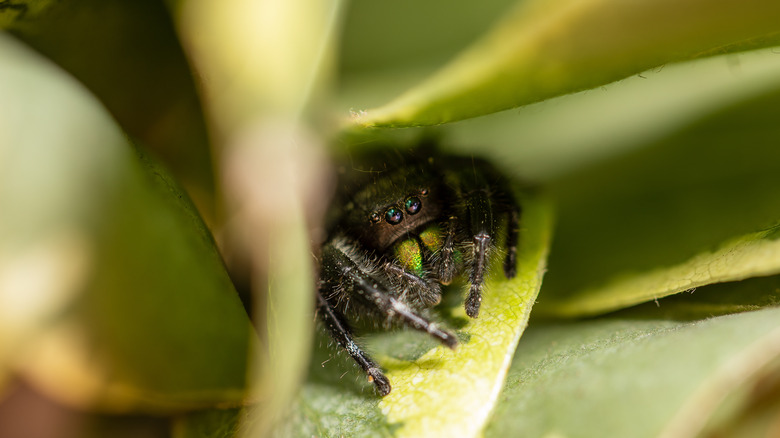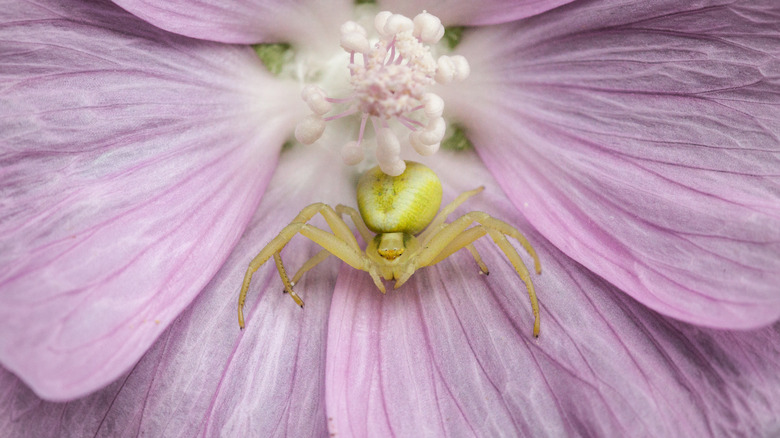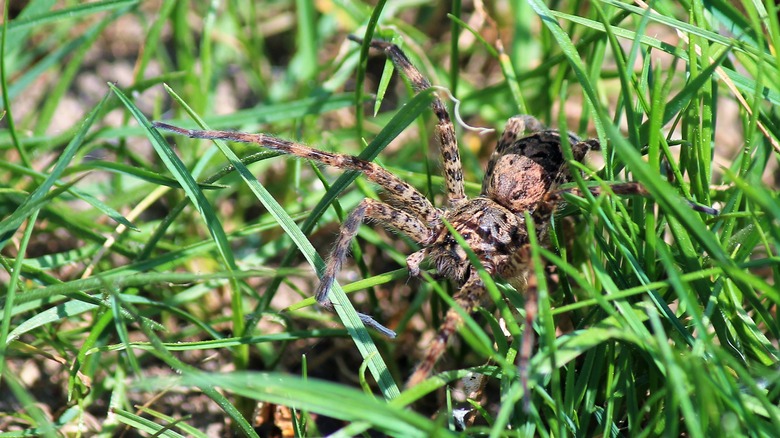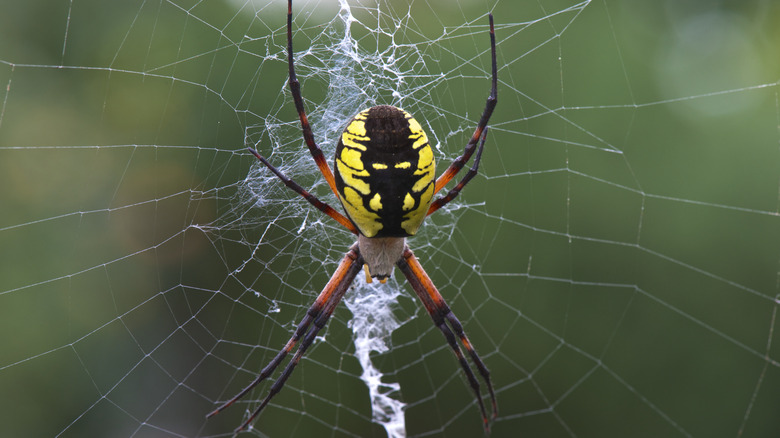You May Want To Stop Killing Spiders In Your Garden
Many people are afraid of spiders and will kill them whenever they see them, inside or outside. But why are people so spooked? Although some have suggested that this fear comes from a distant evolutionary past where our ancestors had to fear spiders, research has shown that we are not born with a fear of spiders. As detailed by Dr. Vanessa LoBue for Psychology Today, toddlers don't seem to find spiders any more distressing than hamsters or fish, and love interacting with them when given the opportunity. This suggests that sometime in childhood we learn to fear spiders from our parents and other trusted adults, who are also scared of spiders. If you are a gardener, it might be time to unlearn that particular lesson.
While many fear being bitten by a spider, this is actually highly unlikely. Some may have large, visible fangs, but you can rest assured that they are not intended for you. While spiders are adept hunters that can catch many insects in their jaws, most spiders are physically incapable of breaking the skin on something as large as a human, even if they tried. As stated by entomologist Dr. Chris Buddle, there are many kinds of insects that can (and do) bite and sting humans, and spiders usually take the blame.
So spiders might not be harmful, but how can they help your garden?
Spiders eliminate harmful pests
Your garden is an ecosystem, and whether or not it looks like it from a human level, it is teeming with life. Bugs like aphids, caterpillars, beetles, grasshoppers, thrips, and leafhoppers all make their home in gardens, and if left unchecked, they can do serious damage to your plants. Spiders are one of the checks that keeps these bugs from getting out of control. Spiders don't eat your plants — they eat the bugs that do. The more spiders you kill in your garden the more plant-eating bugs will survive to chew up the plants you have in your garden.
If left alone, spiders will do a lot of your pest control for you. Without them, you will be forced to become your own exterminator, which could mean harsh chemicals that damage the ecosystem further. Contrary to the advertising, there is no pesticide that can tell the difference between a bug that eats your plants and one that doesn't, so any pesticide intended to take out aphids is also harmful to the bees and butterflies your garden (and the world) needs.
Preventing diseases
Some insects can decimate your plants by eating them, but that's not the only risk. As described by an article in the American Society for Microbiology, many pathogens that impact plants are carried by bugs that live on plants like aphids as they eat it on one plant, move to another plant, and through the normal digestive process transmit the pathogen to a new host plant. By eating the bugs carrying these dangerous bacteria and fungi, spiders are protecting your plants from getting sick.
Spiders may also be able to keep you healthy while you work in your garden. Bugs like mosquitos and ticks, which latch onto you in order to drink your blood, can cause irritating bites and make gardening a lot less fun – but they can also carry serious illnesses that they can transmit to you. Spiders are willing to eat just about any bug they can get their chelicerae on, and that includes ticks and mosquitoes.
What spiders are in your garden?
The answer to this question depends on where you live. If you are in the United States, you may be seeing large yellow and black spiders which weave enormous webs that have a shape like a lightning bolt down the middle. These are so common in gardens that they are actually called "yellow garden spiders." You may also see grass spiders spinning meshy funnel-shaped webs on your lawn, or big wolf spiders scurrying around under your plants. Little green crab spiders may be lying in wait for bugs in the center of your flowers, and tiny fuzzy jumping spiders could be hopping around on the leaves.
None of these common spiders are dangerous to humans, they are simply looking for their next meal. Luckily for gardeners, that meal is likely an insect that is out to eat their plants. Spiders have a job to do in our gardens, and all we have to do is let them get to work.



